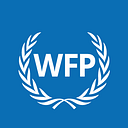Promote, Innovate, Connect: reflections from the UNICEF and WFP Global Impact Evaluation Forum
A call for greater collaboration by impact evaluators could not have been better celebrated than with a high-level, jointly organized forum seeking synergies to share rigorous evidence for the greater good.
From 2–5 December 2024, UNICEF and WFP brought together more than 200 delegates from 80 organizations and 30 countries for the Global Impact Evaluation Forum, held at the United Nations headquarters in New York.
A packed three-day programme on three themes (Promote, Innovate and Connect) led to an urgent call to generate and use rigorous evidence for boosting our impact in a fragile world.
Building a moral and political case for impact evaluation,
on Day 1 of the forum, David Miliband, president and chief executive officer of the International Rescue Committee, reminded us in his keynote address, that the time to act is now:
“We have a critical responsibility to come together to advance a clear agenda. As we do that, we should see impact evaluations as a “public good”. Like any public good they require common investment — an investment of funding no doubt, but also an investment of leadership and political will. An investment of intellectual energy and perseverance. All with the aim to bring rigour to the contention that our work as a sector can drive transformational change for the most vulnerable people in the world.”
PROMOTE a shared evidence agenda
Fakta har makta — Facts have power! Now more than ever we need to take evidence-based decisions on how to best achieve our end goals. It is a moral imperative to assess programme results.
On Day 3, Anne-Claire Luzot emphasized the importance of building a “coalition of the willing” — bridging those generating evidence, with those using it to create a shared evidence agenda that supports policies and programmes.
As Robert McCouch emphasized, “It is not just a question of resource scarcity. It’s also question of time scarcity, bandwidth scarcity, and patience scarcity,” and thus moving beyond our own selection bias, we need to come together to advocate for the power of impact evaluation beyond preaching to the converted. “Our organizations are relying on us to help them make better decisions in a complex, resource-scarce world.”
INNOVATE to drive progress
How do we work together to produce the most credible, efficient, and impactful impact evaluations possible? From sessions on Artificial Intelligence and novel data applications to geospatial methods, the Forum explored the full spectrum of opportunities.
We should prioritize the biggest learning opportunities to support ‘big bets’ — innovative solutions to solve global problems at scale. Every impact evaluation should be judged by its “marginal contribution” value: how novel and widely applicable learnings could be. An impact evaluation is an investment in future effectiveness, at the cost of how much we can help today. The evaluator’s moral imperative is to balance this trade-off.
The Forum also placed key emphasis on cost effectiveness analysis as key to maximizing the value of impact evaluations, calling on evaluators to redouble their efforts to build good quality cost analysis into evaluation designs and set parameters for high-quality financial monitoring data.
Robert McCouch highlighted during the closing plenary, that innovation in constrained, fragile contexts poses additional challenges, “but if it’s possible in humanitarian settings, it’s possible anywhere.” It’s a call to leverage our expertise in innovative ways to make impact evaluations more relevant no matter the context.
CONNECT evaluators and users to foster impact evidence use
Beyond generating credible and useful evaluations, how do we ensure they are truly connected to the real world, how do we ensure that our evaluations are used?
This was a common thread throughout all three days of the Forum. As Dean Karlan USAID Chief Economist noted, “If the evaluations are going to just sit on a shelf, they’re not serving their purpose.” It’s about making impact evaluations actionable, ensuring it informs policies, programmes, and decisions that impact the lives of many.
Anne-Claire Luzot urged audiences to think about the use of impact evaluation evidence in terms of the “last mile”.
“We generate and synthesize the evidence, we close evidence gaps; but how do we make sure the evidence is used? How do we bring it to action? How do we bring it closer to the people who will make the decisions. For me, that’s the last mile.”
The Global Impact Evaluation Forum was about more than knowledge-sharing; it was also about building a community and galvanizing action towards using impact evaluation. Keep following WFP and UNICEF channels for more activities within this growing community.
